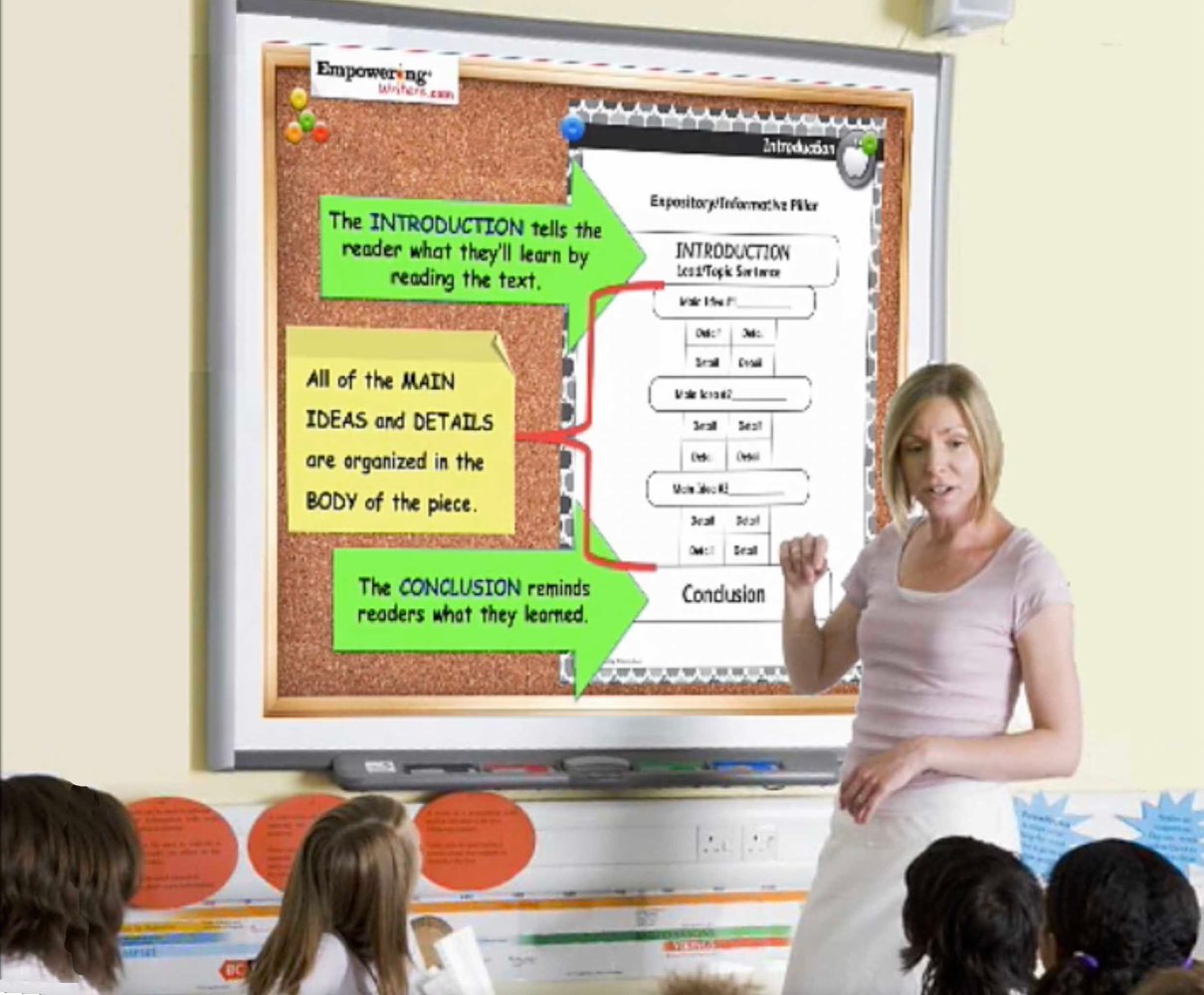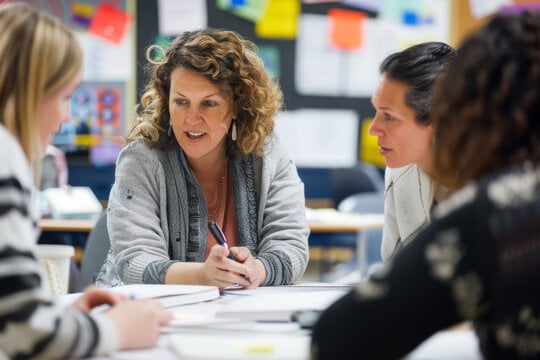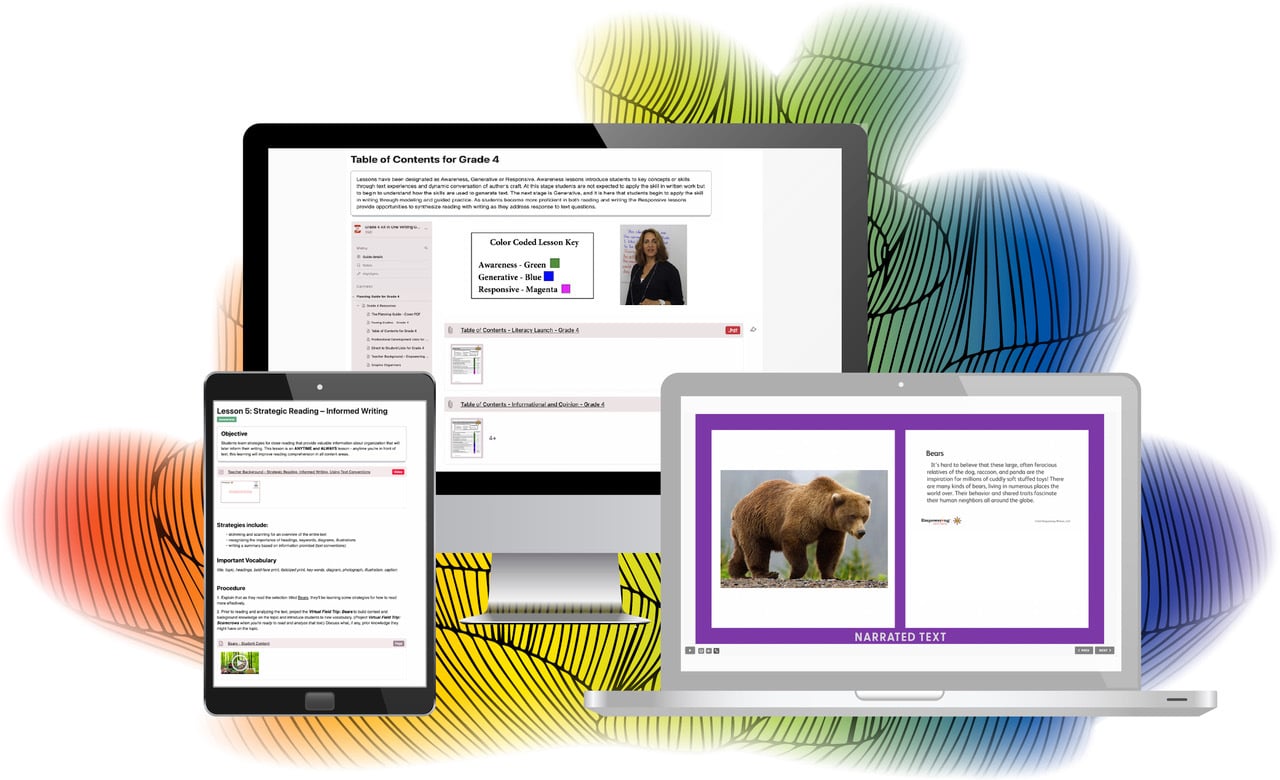Our Methodology
Simple To Understand & Easy To Implement
Our Approach
The Empowering Writers research-based methodology use
Instruction begins with Literacy Launch! This methodology delivers consistent writing experiences and a common vocabulary. Students are introduced to genre-specific skills that significantly improve their writing and strengthen their reading across all text interactions. The pairing of the methodology with our Literacy Launch and other genre lessons dramatically improves student writing skills and enhances reading comprehension with all text interactions.
Our professional development, teaching resources, and other instructional materials for K-8 educators have a positive and lasting impact on student literacy at each grade level.
The Methodology Defined:

Step One: Introduce and Define the Skill
We help you identify the skill you're teaching with the use of literature and published examples through the exploration and notation of age-appropriate written work. These reading sources can include novels, short stories, magazine articles, and non-fiction books.
Let's look at what authors do. If we're focusing on elaborative detail, we can find great published examples to share with students, and examine how the author used the skill to bring detail to the piece.
Step Two: Model
Modeling involves the teacher stepping into the role of author, verbalizing the thought and the questioning processes. Modeling is the best way to build robust vocabulary by asking specific productive questions, eliciting verbal and nonverbal responses from students, and incorporating these responses into powerful writing. Over time, if we ask enough detail-generating questions, students will internalize the questions and apply them independently to their own writing.
We take general or weak student responses and assign robust vocabulary to express their ideas better – translating weak responses into robust responses, giving students credit for their ideas.

We believe that student writers always know more than they can articulate. Their experiences and feelings often exceed their ability to express them. Modeling a lesson in this way empowers and affirms students and gives them the tools to show what is inside of them.

Step Three: Guided Practice
We provide students with the opportunity to practice the skill they've observed in published pieces, and have experienced through modeling. We include plenty of teacher direction, circulating, reiterating detail generating questions while offering feedback and encouragement. We stay focused on the specific, discrete skill, rather than on an entire piece of writing, which can be overwhelming.
Step Four: Application
Eventually, students emulate the process and apply what they've learned, independently.
This methodology addresses the issues teachers have with management and breaks the writing process into manageable pieces for student writers so they can concentrate on particular skills. In this way, students are not overwhelmed at the prospect of writing.
Students internalize and apply acquired writing skills with independent projects that demonstrate confidence and technical mastery.

What else would you like to know?

Professional Development Options
See how the EW Team can help you to learn how to confidently teach writing, improve student performance, and maximize your instructional time.

Recommended Reading
Check out our Recommended Reading to find articles on Empowering Writers instruction in action and strategies to reach literacy success.

Digital Teaching Guides on the HUB
Get the all-in-one online resource that provides you with the how-to demonstration videos, teaching tools and student resources to become a successful teaching of writing.
.png?width=750&height=414&name=upclose.portrait-of-female-high-school-teacher-standing-SC5NGQE%20(1).png)
Free Webinars
These quick informative webinars address our most frequently asked questions and “hot topics”. Tune in as our instructional team presents new content, provides navigational tips, examines the power of skill work and actionable feedback.